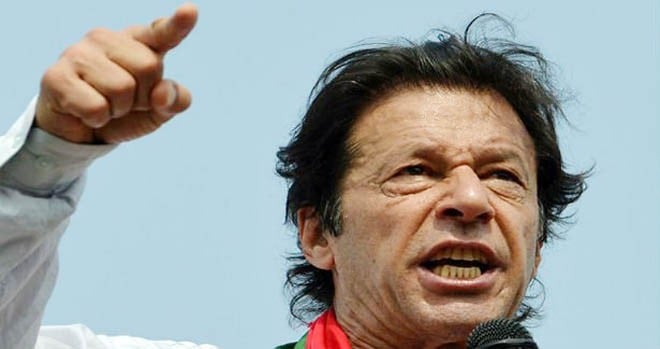
Can we discard mechanisms set in place to achieve democracy?

As the self-appointed messiahs in Islamabad continue their politics of protest, and expand it across urban centres, there is a palpable paralysis afflicting the country. It is evident in the economics, politics and the thought processes shaping this country.
The prime minister is not getting much breathing room. He has to contend with problems within and across borders. For no good reason the legitimacy of his government is under challenge. If that were not enough, the border skirmishes with India are not helping.
The fact that matters have not been resolved with the PTI at home does not represent a threat to PM’s tenure but does represent an ever-growing threat to Mian sahib’s legacy. He entered the office of the prime minister for the third time with promises of economic growth. That is not happening and is not likely to happen if the stalemate continues.
If you are for democracy, this is not something to be celebrated -- regardless of whether you voted against the PML-N.
The search for ‘true’ democracy is an elusive one. No country has the perfect democracy. In the US, for instance, there is a growing body of lay people and public intellectuals who are making clear their disgust with issues of ‘campaign finance’ -- particularly the limits (or lack thereof) on corporations to fund election campaigns. The argument is that if democracy and legislative agendas can be bought for dollars then something is deeply amiss.
And while that may be true, that is no reason to be impatient with democracy itself. It is the only system of government that can be pressurised from within and outside to adapt to changing demands and needs. Therein also lies a weakness. But that is no justification to disrespect a mandate or to hijack a country’s day-to-day life -- something the PTI is currently in the process of doing.
In our search for ‘true’ democracy we cannot throw aside the political and legal mechanisms set in place to achieve that. If we do that we could welcome another Musharraf or Zia, but our democracy will not be stronger.
The PTI’s allegations, even if accepted in their entirety, do not give it a claim to power or to mid-term elections. There are legal avenues available to redress its grievances. By challenging an entire system and refusing to accept outcomes because they do not favour the PTI, the populist party is setting the wrong precedent. Most importantly, this party is setting the precedent that street power is a justification for mid-term elections. The federal government must not cave in on this point. However, it must also do more to encourage a return to normalcy. Having a political mandate is one thing but translating it into public discourse to defeat your opponents is quite another.
On that score, the PML-N has been found wanting. There is, for some inexplicable reason, no urgency to reach out to business community to assure them that all is well and will remain well. This is just one such example. Ignoring the PTI sit-in stopped being an option when a powerful media house decided to vie for the job of PTV if PTI ever comes to power.
None of this, however, excuses the dangerous narrative being propagated by the PTI. In short, Khan is a Narendra Modi-like cult figure -- without ideas and intelligence. Of course there is also the small matter that Khan has never actually governed a state/province. Yet there is a lot in common -- chief among these factors are the rhetoric of a crusade against corruption, dynastic politics, encouraging rabid nationalism et al.
The narrative furthered by the PTI is something that Ayub, Yahya, Zia and Musharraf have inculcated. Consider this: each time a military dictator’s flaws have come to the fore, it has been blamed on the individual but the institution (military establishment) has always held itself blameless. Yet the argument is reversed when it comes to civilian politicians, corruption and democracy. In the case of the latter, if a politician acts unwisely or in a corrupt manner then the blame rests with the institution of democracy -- never the individual!
This skewed discourse leads to the argument ‘Nahi chahiye aisee jamhooriyat’ (we don’t want such a democracy). This, more often than not, ends up doing away with democracy altogether.
Imran Khan may be a charismatic figure but that is no guarantee of his being a leader with the right ideas. Political intelligence demands much more than a degree in politics. Khan may be disgusted with the ‘emperor-like’ attitude of the politicians in power but the way he speaks for KPK (even though he is not a part of the government in the province) reveals his own attitude as well.
The gamble that the PTI is playing is becoming more and more apparent: it seems to have discovered that the problems in KPK are multifarious and it does not trust itself to solve the province’s problems. And if performance alone cannot give it an argument in the next elections for running the federation, the logical next step is agitation and sympathy vote because of alleged ‘cheating’.
Khan’s day in power will ideally not come any time soon -- at least not before the next scheduled general elections. If his time does come however, he may realise that he will inherit a system much weaker than he imagines.
And life is tough when you have no one to blame but yourself. Who will he blame then?